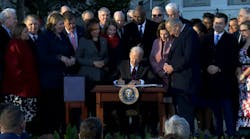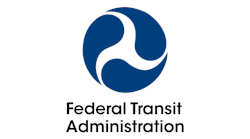FTA awards $8.6 million in grants through the Tribal Transit Program
The Federal Transit Administration (FTA) has awarded $8.6 million in Fiscal Year 2022 grants through the Tribal Transit Program to more than two dozen American Indian Tribes and Alaska Native communities that will use the grants to improve transit services in their communities.
“With today’s announcement, we are taking an important step to help ensure Tribal residents have access to reliable, affordable ways to get around,” said U.S. Transportation Secretary Pete Buttigieg. “Using funds from President Biden’s Bipartisan Infrastructure Law, these grants will help improve transit for Tribal Nations around our country.”
The competitive grants awarded by FTA are in addition to the more than $35 million in formula funding Tribal Transit programs receive from the federal government annually. Competitive funding for Tribal Transit programs will see an 83 percent increase during the next five years due to the Infrastructure Investment in Jobs Act, which includes nearly $46 million for the programs.
The grants ranged between $16,000 to $1.6 million, but the impact of the funding is measured beyond dollar amounts. In a press briefing held in Seattle, Wash., a state home to more than 100,000 Native Americans, representatives from the C’oeur D’Alene Tribe and Nez Perce Tribal Committee explained without transit service, the alternative transport mode for their communities would be walking long distances or relying on friends, neighbors and relatives for rides.
According to the National Transit Database, nearly 12 million vehicle miles of service are provided by Tribal Transit systems each year nationwide, providing critical access to jobs, schools, healthcare and shopping and to provide eldercare.
“[These] grant awards will improve public transportation and connections for people in communities that have been historically underserved,” said FTA Administrator Nuria Fernandez. “We want to make sure that no one is left behind as we expand and modernize transit systems.”
Examples of projects selected to receive Fiscal Year 2022 funding include:
- The Native Village of Unalakleet in Alaska will receive $1.6 million to build a bus garage and maintenance facility that will provide sheltered indoor space to store and repair buses, an important step in maintaining the fleet. The village, located on the Norton Sound, 180 miles southeast of Nome, provides on-demand transit to help residents get to the health clinic, grocery store, post office, Tribal office, airport and other services.
- The Walker River Paiute Tribe in Nevada will receive $976,360 to establish the Agai-Dicutta Tribal Transit Program. The program will provide Tribal transit services from the Walker River Paiute Reservation to several cities in Nevada. This project will improve access to and within the community and better connect residents to jobs, healthcare, and economic opportunities.
- The Winnebago Tribe in Nebraska will receive $489,700 to replace vehicles, buy new equipment and upgrade its maintenance facility. This project will ensure a continuity of services especially needed for winter weather conditions.
FTA says it received 47 eligible project proposals requesting approximately $18 million from Tribes and Alaska Native Village applicants in 17 states in response to the Notice of Funding Opportunity that was issued in February 2022.
FTA’s Tribal Transit Program supports public transportation for federally recognized American Indian Tribes and Alaska Native Villages, groups, or communities. The funding is vital to help Tribes meet the needs of their citizens, including elders, people with disabilities and youth in rural areas.
A full list of the FY22 Tribal Transit Program grant recipients is available at FTA's website.
Mass Transit Staff Report
Stories under this byline were produced through a team effort by the editorial staff of Mass Transit.
To learn more about our team, click here.
If you have a story idea, let us know by emailing [email protected]. Please review our contributor guidelines found here.






